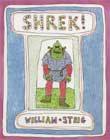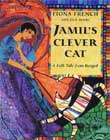| Introduction | Annotated Tales | eBooks | Bookstore | Illustration Gallery | Discussion Board | Blog |
 |
|
FAQ Puss in Boots made an appearance in Shrek 2 in 2004 and again in Shrek the Third in 2007. While Shrek and Princess Fiona are original creations of William Steig, a children's book author, Puss in Boots comes from a French fairy tale written down by Charles Perrault hundreds of years ago. The animators of the film obviously found inspiration from Gustave Dore's illustrations of the tale. Below are links to the first Shrek movie and William Steig's original book.
|
Puss In Boots Note that this version from Crane's Italian Popular Tales is taken from Straparola's The Facetious Nights, often titled 'Constantino Fortunato.' Soriana dies and leaves three sons: Dusolino, Tesifone, and Constantine the Lucky, who, by virtue of a cat, acquires a powerful kingdom. THERE was once in Bohemia a very poor lady named Soriana, who had three sons: one was called Dusolino, the other Tesifone, and the third Constantine the Lucky. She owned nothing valuable in the world but three things: a kneading-trough, a rolling-board, and a cat. When Soriana, laden with years, came to die, she made her last testament, and left to Dusolino, her eldest son, the kneading-trough, to Tesi fone the rolling-board, and to Constantine the cat. When the mother was dead and buried, the neighbors, as they had need, borrowed now the kneading-trough, now the rolling-board; and because they knew that the owners were very poor, they made them a cake, which Dusolino and Tesifone ate, giving none to Constantine, the youngest brother. And if Constantine asked them for anything, they told him to go to his cat, which would get it for him. Wherefore poor Constantine and his cat suf fered greatly. Now the cat, which was enchanted, moved to compassion for Con stantine, and angry at the two brothers who treated him so cruelly, said: “Constan tine, do not be downcast, for I will provide for your support and my own.” And leav ing the house, the cat went out into the fields, and, pretending to sleep, caught a hare that passed and killed it. Thence, going to the royal palace and seeing some of the courtiers, the cat said that she wished to speak with the king, who, when he heard that a cat wished to speak to him, had her shown into his presence, and asked her what she wished. The cat replied that her master, Constantine, had sent him a hare which he had caught. The king accepted the gift, and asked who this Constantine was. The cat replied that he was a man who had no superior in goodness, beauty; and power. Wherefore the king treated the cat very well, giving her to eat and drink bountifully. When the cat had satisfied her hunger, she slyly filled with her paw (unseen by any one) the bag that hung at her side, and taking leave of the king, car ried it to Constantine. When the brothers saw the food over which Constantine exulted, they asked him to share it with them; but he refused, rendering them tit for tat. On which account there arose between them great envy, that continually gnawed their hearts. Now Constantine, although handsome in his face, nevertheless, from the privation he had suffered, was covered with scabs and scurf, which caused him great annoyance. But going with his cat to the river, she licked him carefully from head to foot, and combed his hair, and in a few days he was entirely cured. The cat (as we said above) continued to carry gifts to the royal palace, and thus supported her master. But after a time she wearied of running up and down so much, and feared that she would annoy the king’s courtiers; so she said to her mas ter: “Sir, if you will do what I order, I will make you rich in a short time.” “How?” said her master. The cat replied: “Come with me, and do not ask any more, for I am ready to enrich you.” So they went together to the stream, which was near the royal palace, and the cat stripped her master, and with his agreement threw him into the river, and then began to cry out in a loud voice: “Help! Help! Messer Constantine is drowning.” The king hearing this, and remembering that he had often received presents from him, sent his people at once to aid him. When Mess er Constantine was taken out of the water and dressed in fine clothes, he was taken to the king, who received him cordially, and asked him why he had been thrown into the river. Constantine could not answer for grief; but the cat, which was always at his side, said: “Know, 0 king, that some robbers learned from spies that my master was loaded with jewels, which he was coming to present to you. They robbed him of all, and threw him into the river, thinking to kill him, but thanks to these gentlemen he has escaped from death.” The king, hearing this, ordered that he should be well cared for; and seeing that he was handsome, and knowing him to be wealthy, he concluded to give him Elisetta, his daughter, for a wife, endowing her with jewels and most beautiful garments. After the wedding festivities had been ended, the king had ten mules loaded with money, and five with costly apparel, and sent his daughter to her husband’s home, accompanied by a great retinue. Constantine, seeing that he had become so wealthy and honored, did not know where to lead his wife, and took counsel with his cat, which said: Crane, Thomas Frederick. Italian Popular Tales. Boston: Houghton Mifflin Company, 1885. |
|
| ©Heidi
Anne Heiner, SurLaLune Fairy Tales E-mail: heidi@surlalunefairytales.com Page created 10/2000; Last updated 7/2/07 www.surlalunefairytales.com |
















